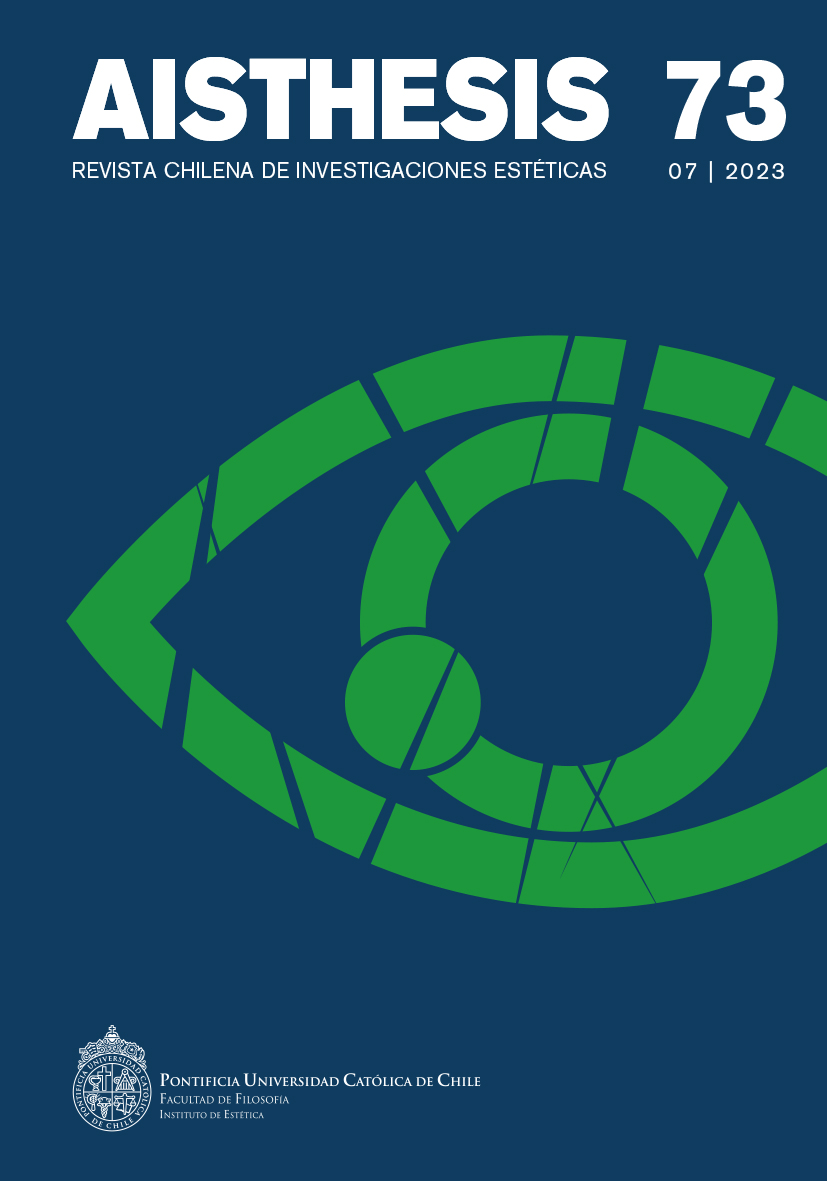Cartography of an Essential Intermission. The Entry of Women into the Chilean Cultural and Literary Field since the Sixties
Main Article Content
Abstract
This article describes the material, symbolic and discursive grounds that allowed a group of young women to enter, develop and consolidate their position in the Chilean cultural and intellectual field in the sixties. The goal is to elaborate a cartography of the historical and cultural scene that allowed them to localize and legitimize their own critical/political voices, as well as build discursive strategies to dwell in a mainly patriarchal territory. Finally, it pretends to visibilize the theoretical and critical work of a generation that has made a strong contribution in literary analysis at a local and global scale.
Downloads
Article Details

This work is licensed under a Creative Commons Attribution-NonCommercial-ShareAlike 4.0 International License.
All contents of this electronic edition are distributed under the Creative Commons license of "Attribución-shareAlike 4.0 Internacional" (CC-BY-SA). Any total or partial reproduction of the material must mention its origin.
The rights of academic works published in this publication belong to their authors., who grant to AISTHESIS: Revista Chilena de Investigaciones Estéticas the license for its use. The management of the permits and the authorization of the publication of the images (or of any material) that contains copyright and its consequent rights of reproduction in this publication is the sole responsibility of the authors of the articles
References
Amaro, Lorena: ““En un país de silencio”: Narrativa de Marta Brunet”. Obra Narrativa. Cuentos – Tomo II. Santiago: Ediciones Universidad Alberto Hurtado, 2017. 17–82.
– – – . La Pose Autobiográfica. Santiago: Ediciones Universidad Alberto Hurtado, 2018.
Bianchi, Soledad: “Lectura de Mujeres”. Ver desde la Mujer. Ed. Olga Grau. Santiago: Ediciones La Morada y Cuarto Propio, 1990.125–141.
Contreras, Joseph, Lebuy. “Soledad Bianchi y la polifonía del campo cultural”. Entrevista en Letras en línea, Dossier Jornadas de Alta tensión. Diciembre, 2019. Web.
Doll, Darcie: “Variaciones de la autonomía en escritoras chilenas de finales del S. XIX y comienzos del XX”. Redes, alianzas y afinidades: mujeres y escritura en América Latina: homenaje a Montserrat Ordóñez (1941 – 2001). Comp. Alzate, Carolina. Bogotá: Universidad de los Andes, 2014. 71-84.
– – –. “La crítica literaria de mujeres en Chile: las precursoras y las contradicciones frente a la literatura nacional”. Género y memoria de América Latina. Ed. Gloria Hintze y María Antonia Zandael. Mendoza: Centro de Estudios Transandinos y Latinoamericanos, Facultad de Ciencias Políticas y Sociales, Universidad Nacional de Cuyo, 2007. 67-68.
Escobar-Lasarte, Carolina: Poéticas y políticas de-generativas en tres narradoras latinoamericanas contemporáneas. Tesis para optar al grado de Doctora en Literatura Latinoamericana. Departamento de Español, Facultad de Humanidades y Artes. Universidad de Concepción, 2016.
Foucault, Michel. Vigilar y Castigar. Buenos Aires: Siglo XXI, 2001.
Foucault, Michel. Nacimiento de la biopolítica: Curso en el Collége de France (1978-1979). Buenos Aires: Fondo de Cultura Económica, 2008
Kirkwood, Julieta. Ser Política en Chile. Santiago: Cuarto Propio, 1990.
Lispector, Clarice. “La mujer más pequeña del mundo”. Lazos de Familia. Barcelona: Montesinos, 1988.
Marx, Karl: El Dieciocho de Brumario de Luis Bonaparte. Madrid: Fundación Federico Engels, 2003.
Milos, Pedro: El Frente popular en Chile. Santiago: LOM, 2008.
Mistral, Gabriela: Por la humanidad futura. Santiago: La pollera ediciones, 2016.
Montero, Claudia: “Figuras femeninas en el campo intelectual del Chile de la Modernización”. Revista Palimpsesto Vol. VIII, Nº 11. Universidad de Santiago de Chile (2017): 38–54.
– – –. Narrativas de la cohesión social en publicaciones periódicas del Cono Sur americano (1900-1940). Madrid: Polifemo, 2019.
Nitschack, Horst: “Antropofagia cultural y tecnología”. UNIVERSUM, Vol. 3, nº2 (2016): 157–171.
Oyarzún, Kemy. “Género y Canon: La Escritura de Marta Brunet”. Revista Cyber Humanitas Nº 14 (2010). Web.
Pinto, Julio y Gabriel Salazar. Historia contemporánea de Chile IV. Santiago: LOM, 2002.
Pratt, Mary, Louise. Ojos Imperiales. Literatura de viajes y transculturación. México: F.C.E, 2010.
Richard, Nelly: Masculino/Femenino: Prácticas de la diferencia y cultura democrática. Santiago: Francisco Zegers Editor, 1993.
Rojo, Grínor: Proposiciones. Ensayos sobre teoría crítica. Inédito, 2020.
Rossetti, Josefina: “La Educación de las mujeres en Chile Contemporáneo”. Mundo de Mujer: continuidad y cambio. Santiago: Ediciones CEM, 1988. 97 – 1981.
Sánchez, Cecilia. Mujeres en la escena de la filosofía. Universidad Diego Portales. Conferencia UDP, 2017. Vídeo.
Sarlo Beatriz: Tiempo Pasado. Cultura de la Memoria y Giro Subjetivo. Una discusión. Buenos Aires: Siglo XXI, 2005.
– – –. Una Modernidad Periférica. Buenos Aires 1920–1930. Buenos Aires: Nueva Visión, 1988.
Subercaseaux, Bernardo: “Política y Cultura”. Historia de las Ideas y de la Cultura en Chile V. Santiago: Editorial Universitaria, 1997.
Subercaseaux, Bernardo: Transformaciones de la Crítica Literaria en Chile: 196 –1982. Santiago: CENECA, 1983.
– – –. “Historia ‘personal’ de la crítica literaria en Chile”. Revista Dossier Nº4. Santiago: Universidad Diego Portales, 2006.
Traverso, Ana. “Ser mujer y escribir en Chile”. Anales de la Literatura Chilena (2014): 67-69.
Trouillot, Michel-Rolph. Silencing the past. Power and the production of history. Boston: Beacon Press, 1995.
Wittig, Monique: El pensamiento heterosexual y otros ensayos. Madrid: Egales, 2006.
